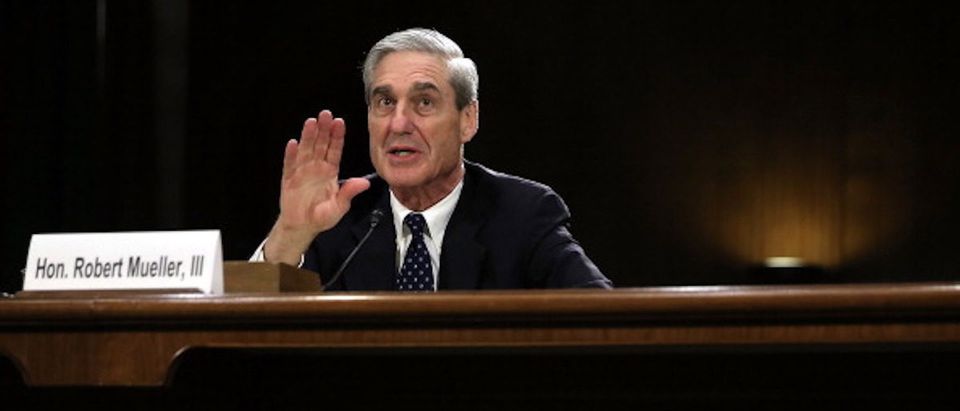A prosecutor working for Special Counsel Robert Mueller said that the recent prosecution of a Trump campaign adviser for lying to the FBI about his Russian contacts is “a small part” of a “large-scale investigation” — a strong indication that much more is yet to come in the investigation into possible collusion between the Trump campaign and Russian government.
“The criminal justice interest being vindicated here is there’s a large-scale ongoing investigation of which this case is a small part,” Aaron Zelinsky, a prosecutor on Mueller’s team, said in an Oct. 5 plea hearing for former Trump campaign adviser George Papadopoulos. (RELATED: How George Papadopoulos Ended Up On The Trump Campaign)
Papadopoulos, a 30-year-old energy consultant, pled guilty in that hearing to lying to the FBI about his interactions with three Russian operatives during the campaign. Papadopoulos admitted to lying to FBI agents during a Jan. 27 meeting to discuss his relationship with the Russians, who are described as a London-based professor, a female Russian national, and a man representing himself as having connections to the Russian Ministry of Foreign Affairs.
The news of the plea followed the announcement that former Trump campaign chairman Paul Manafort and a business associate of his named Rick Gates were being indicted on money laundering, tax evasion and conspiracy charges.
While the indictment against Manafort and Gates laid out no evidence of collusion between the campaign and Russians, the same cannot be said of the statement of offense released in the Papadopoulos case.
The government’s “statement of offense” against Papadopoulos showed that he attempted to set up meetings between the Trump campaign and Russian government officials. He also discussed an offer from the London-based professor who claimed that he had access to “thousands” of Hillary Clinton’s emails.
The email proposal was made on April 26, 2016, more than a month after Russian hackers broke into the Gmail account of Clinton campaign chairman John Podesta.
No evidence was presented in the statement showing that Papadopoulos was successful in obtaining Clinton emails or of setting up meetings between the Trump campaign and Russian government.
But it wasn’t for lack of Papadopoulos’ trying. Campaign emails showed that Papadopoulos emailed Trump campaign officials offering to arrange the meetings. In some cases, he was rebuffed; in others, he was encouraged to continue his endeavor.
In an Aug. 15, 2016 email exchange, a Trump “campaign supervisor” told Papadopoulos, “I would encourage you” to set up an “off the record” trip with Russian officials.
According to the government’s offense statement, Papadopoulos has been cooperating with the FBI since his July 27 arrest.


